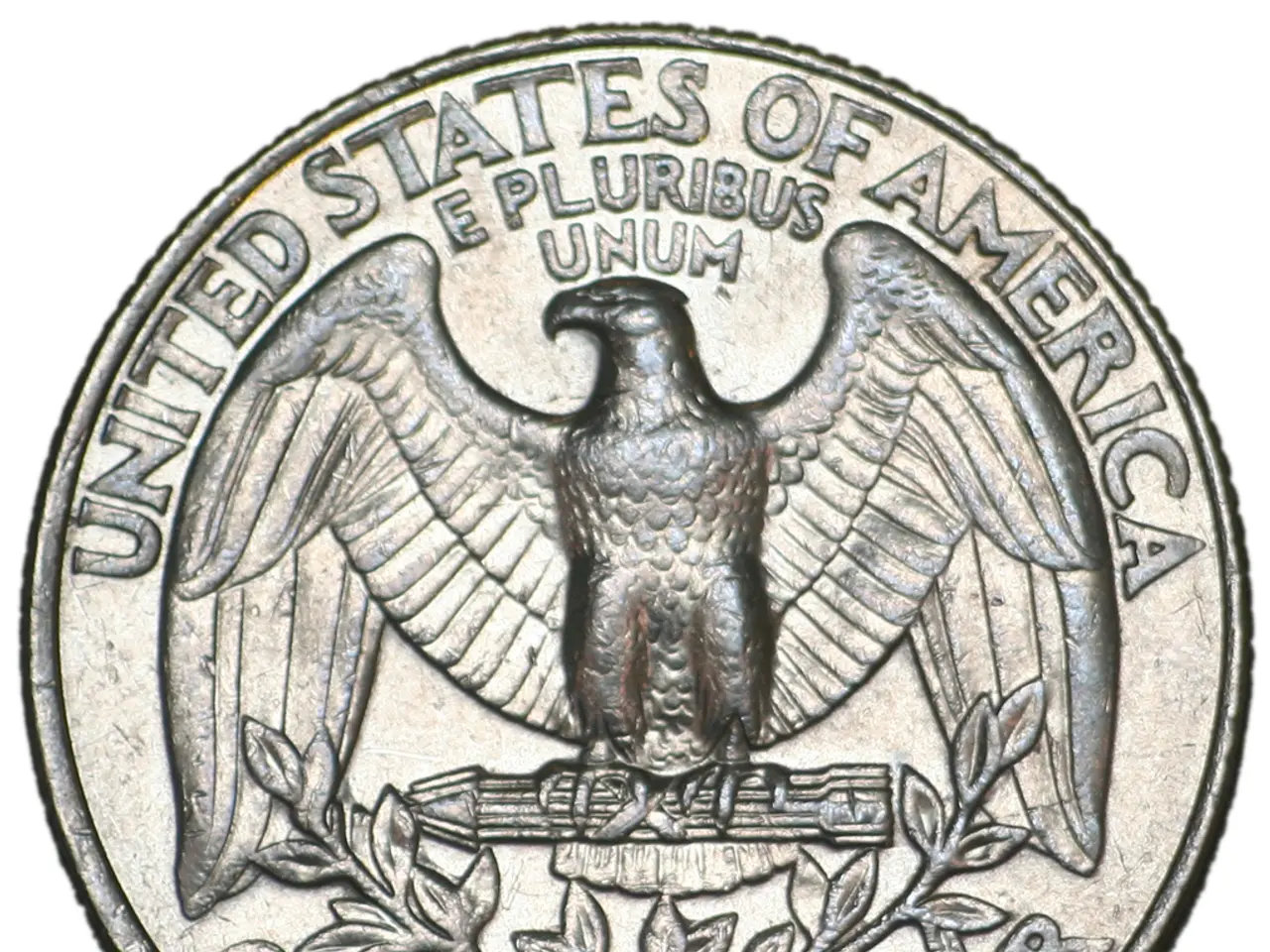Foreign investment surges at Kuwait Stock Exchange, predominantly from institutions and corporations
Foreign investments in Kuwait's stock market have been on the rise, with a significant increase of 118.25 million dinars recorded in June alone. This surge is seen as a positive indicator of investor confidence, as the country continues to attract foreign capital.
The inflows are expected to stimulate greater demand for select stocks, contributing to the expansion of listed companies and enhancing economic performance. During the same period, the number of trading accounts on the Kuwait Stock Exchange rose by 1.33%, increasing to 437,350 accounts.
Foreign funds saw a smaller drop of around 317,500 dinars in June, while individual foreign investments declined by 2.49 million dinars. However, active foreign accounts saw strong growth, rising by 17.56%, or 286 accounts, to reach 1,914.
Net foreign purchases by institutions and companies reached approximately 453 million dinars, with foreign investment funds contributing 2.5 million dinars in net purchases.
The increase in foreign investments aligns with Kuwait's series of reforms and developments, including economic diversification, structural reforms, and index inclusions. The country's push toward digital transformation and financial technology development has further boosted its attractiveness to foreign investors.
Kuwait is experiencing a positive operational environment with strong momentum in awarding and implementing major development projects aligned with Kuwait Vision 2035. The government’s focus on accelerating these projects has boosted investor confidence. Additionally, the non-oil sector in Kuwait has maintained robust expansion, with a 28-month streak of growth in output and new orders, supported by competitive pricing and enhanced marketing efforts.
International organizations like the IMF and World Bank forecast real GDP growth for Kuwait at around 1.9% to 3.3% in 2025, signaling economic recovery and stability following previous contraction years. This fosters a favorable investment climate that attracts foreign capital.
The Gulf Cooperation Council (GCC), including Kuwait, is emerging as an attractive hotspot for private and institutional investors globally due to strong market fundamentals, ongoing reforms, and promising exit opportunities, such as a maturing IPO market. This growth in private equity, debt, real estate, and infrastructure investment opportunities appeals to sovereign wealth funds, family offices, pension funds, and increasingly foreign institutional investors.
Kuwaiti delegations engaging in high-level meetings and investment forums, such as the Egyptian-Kuwaiti Investment and Business Forum, underline efforts to strengthen economic ties and open new avenues for investment within Kuwait and the broader region. This fosters confidence among foreign investors regarding Kuwaiti market openness and opportunities.
Institutions like the National Bank of Kuwait have been recognized repeatedly as leading foreign exchange providers, indicating a mature and reliable financial services sector that supports foreign investment flows effectively.
However, it's worth noting that the number of active Kuwaiti accounts declined by 1.8%, while the number of active GCC accounts saw a slight decrease of 1.11%, bringing the total to 266 active accounts by the end of June. Kuwaiti investors maintained a net selling trend, offloading shares worth approximately 431.49 million dinars in the first six months of the year. Gulf Cooperation Council (GCC) investors registered net outflows during the same period, amounting to 10.8 million dinars.
In conclusion, the surge in foreign investments in the Kuwait Stock Exchange is driven by Kuwait’s favorable economic growth prospects, proactive government development projects in line with Vision 2035, expanding non-oil sector performance, growing investor appetite for GCC markets, strengthened regional economic cooperation, and strong financial infrastructure. These factors, coupled with Kuwait's ongoing reforms and developments, make it an attractive destination for foreign investment.
Investors are anticipated to increase their focus on select stocks, as the rise in foreign investments is eagerly anticipated to stimulate growth among listed companies and boost economic performance. Ongoing developments in the country's finance sector, including advancements in digital transformation and financial technology, are enticing foreign institutional investors to participate in investing activities.





